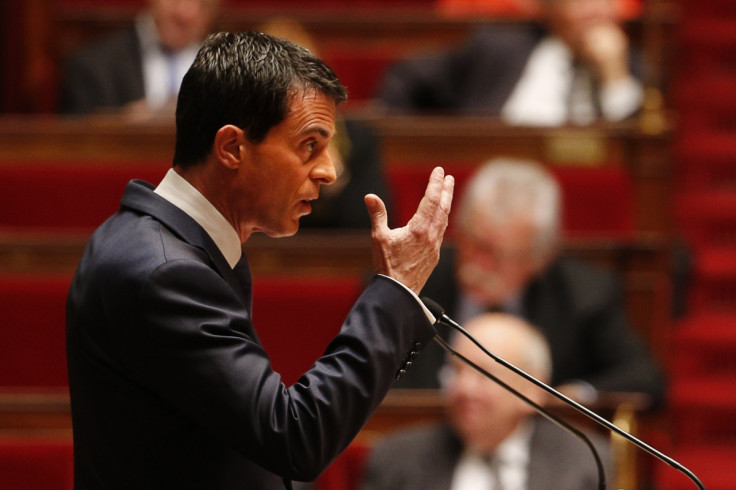France opening mysterious 'de-radicalisation' centres to dissuade young people from joining Isis

French Prime Minister Manuel Valls has announced that the nation will open twelve mysterious "de-radicalisation centres", intended to identify and rehabilitate those at risk of joining jihadi groups by dissuading them from doing so. The centres are part of an 80-point plan to fight terrorism in the country that will come at an overall cost of $45.5m (€40m, £31.5m).
"Each era has its challenges. The fight against jihad is undoubtedly the big challenge of our generation," Valls said at a press conference in Paris, reported France24.
The regional centres will aim to stem the flow of young people heading to Syria and Iraq and begin the process of de-radicalising them. How that will be accomplished was not immediately clear.
The first rehab centre, equipped with "long-term housing" for young people who have been radicalised, will open in the summer of 2016, said Valls. It will be for those who "have repented, who have already proven to us their sincere desire to be rehabilitated in the long term," he added.
It was unclear as to how people would be chosen, or sent to such a facility, and what legal justification would be required. However, at least half of the new facilities will hold those deemed by a judge to be at risk of radicalisation, but who cannot legally be placed in detention, Valls added, without offering any further explanation.
The network of centres will be run by France's Inter-Ministerial Committee for the Prevention of Delinquency and Radicalisation. In 2014 France set up a special phone line for the public to report terrorism suspects. That line will be extended as part of this new plan, which will also seek to tighten security at nuclear plants and public transportation sites, and will grant more money to France's intelligence services. In addition, the French government's latest plan will establish a research committee to understand why people radicalise.
The new anti-terrorism measures follow a tragic year when a total of 147 people were killed in a series of attacks in and around Paris by Islamist gunmen in January and November 2015. Most of the perpetrators were French citizens, who had become radicalised before travelling abroad to fight alongside jihadist groups.
France estimates there are more than 9,000 radicalised people or would-be jihadis currently in its midst. About 2,000 French nationals or residents are believed to have travelled to Syria and Iraq to fight on behalf of the Islamic State.
© Copyright IBTimes 2025. All rights reserved.




















